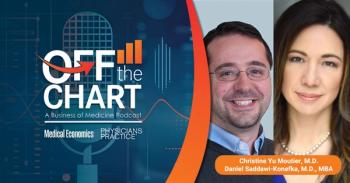
Six questions to answer before preparing 2020 taxes
The big picture goal should be to eliminate as much tax-liability as you can over time
As a physician, you’ve worked hard for your degree and the ability to earn the income that comes along with it. But as we all know, one of the challenges of being a high-income earner is devising a tax-planning strategy that keeps more money in your pocket and less out of the Uncle Sam’s.
Of course, getting your tax documents together isn’t exactly anyone’s idea of a fun weekend activity, but we can likely all agree that the potential savings are worth the careful planning.
As you begin to pull together your tax information for 2020, answer these 6 essential questions to potentially reduce your taxable income 2020 tax liability.
1. Can you contribute more to your retirement accounts?
While the contribution deadline for most employer-sponsored plans (such as 401(k)s, 403bs, and most 457 plans) falls on the last day of the calendar year, traditional IRAs and Roth IRAs allow individuals to beef up their savings as late as the tax-filing deadline—
Not only will contributing more to these accounts grant your funds more time to compound, but can help reduce your taxable income. This could be an especially advantageous move for physicians whose income places them at the cusp of spilling over into a higher tax-bracket.
2. Did you make any charitable contributions?
Making charitable contributions are a tried and true tax-reduction strategy. But, in order to receive credit for your generosity, you need to be able to produce a receipt for each and every donation.
If you didn’t take advantage of donating last year, here are a few things to keep in mind for 2021.
- Donations don’t always have to be cash.
- Consider opening a
Donor-Advised Fund to lump multiple years’ worth of donations into a single filing year for a larger upfront deduction. - Consider donating appreciated securities, such as stocks or bonds, to get a double tax-advantage—you’ll get both the charitable contribution deduction and avoid capital gains tax.
3. Did you give any monetary gifts?
Each and every year you can gift a certain amount to anyone you want without having to deal with
If you gave more than $15,000 in cash or assets (e.g. stocks, land, a new car) last year to any single person, you will need to file a gift tax return IRS Form 709 to be compliant with the IRS tax code. This doesn’t necessarily mean you’ll have to pay a gift tax this year, it simply satisfies the requirement to disclose the gift.
4. Do you qualify for the Qualified Business Income (QBI) deduction?
If you’re an independent contractor or a locum tenens physician, there are several things you can do to claim deductions against your income, one being the possible deduction for
5. Did you qualify to claim any tax credits?
A
6. Have you put a plan in place for 2021 and beyond?
If going through this list has you thinking there may be a number of opportunities you missed out on in 2020, now is the time to devise a tax plan for 2021 and beyond. The big picture goal should be to eliminate as much tax-liability as you can over time, ultimately leaving you more to save and invest to build wealth.
About the Author
Julianne F. Andrews , MBA, CFP®, AIF® began her career in financial planning in 1988 and co-founded Atlanta Financial Associates in 1992, merging into Mercer Advisors in 2020. She specializes in working with physicians and executives in the healthcare industry. Her passion for working with physicians comes from being a pediatrician’s spouse for more than three decades. Julie has been featured on Forbes’ list of America’s Top Women Wealth Advisors since 2017 as well as Forbes’ Best-in-State Wealth Advisors since 2018. Julie can be reached at jandrews@merceradvisors.com .
Newsletter
Optimize your practice with the Physicians Practice newsletter, offering management pearls, leadership tips, and business strategies tailored for practice administrators and physicians of any specialty.








